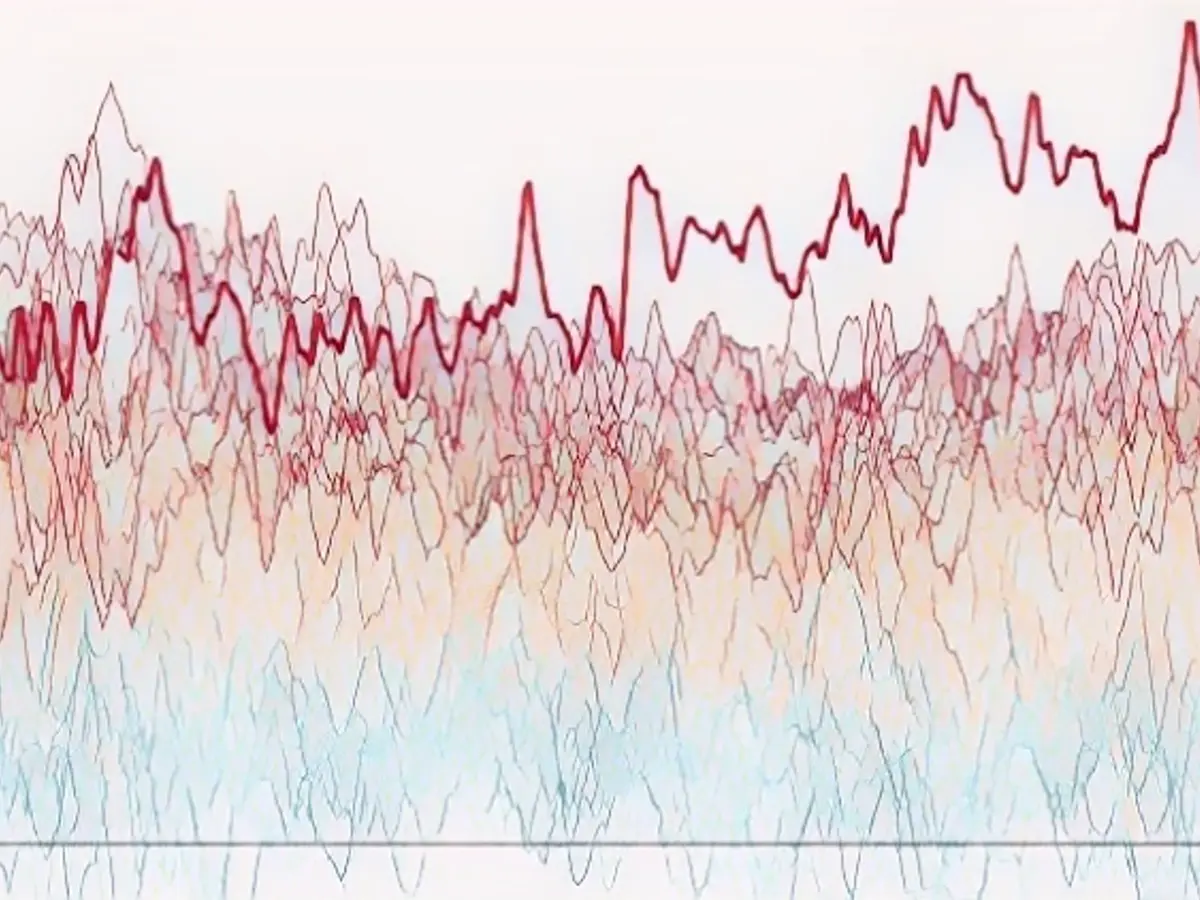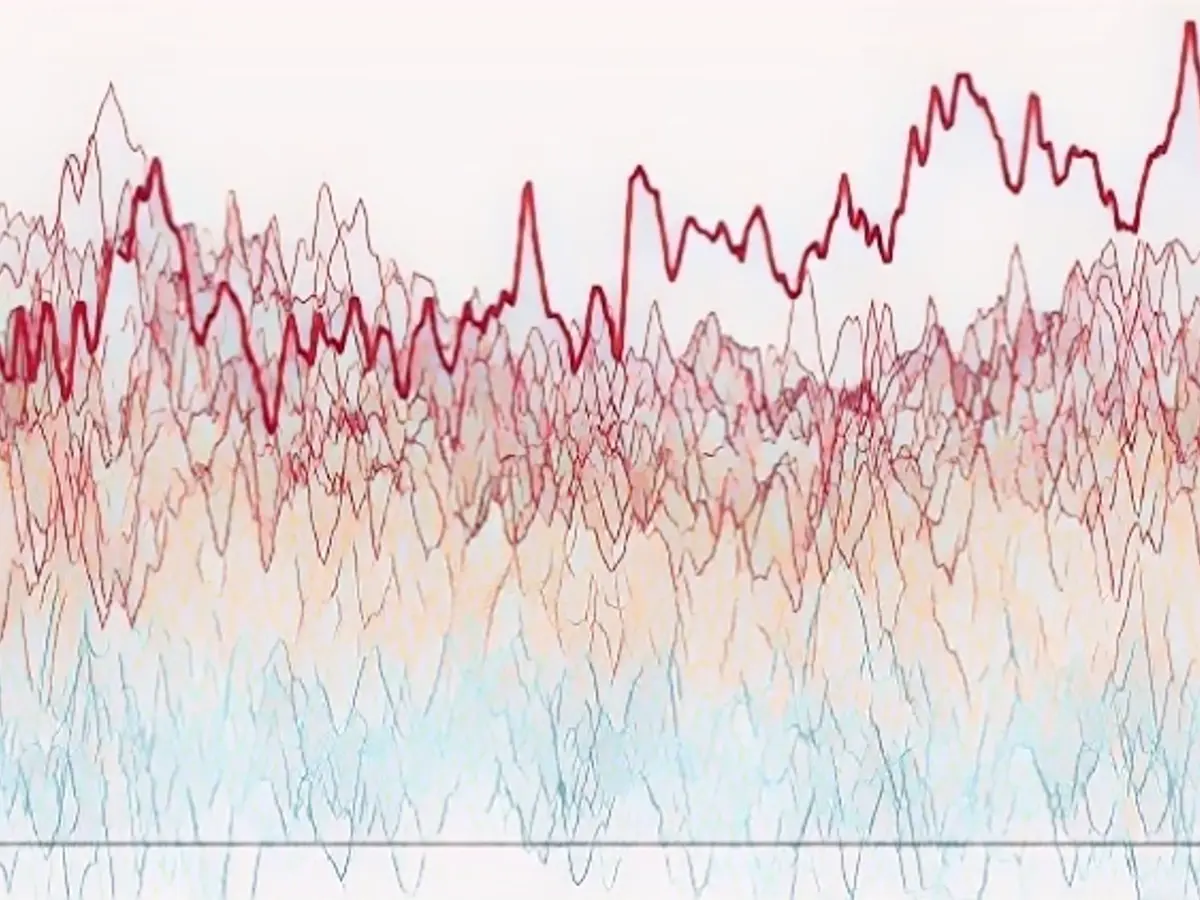2023: Shattering Temperature Records and Redefining Norms
The mercury has been climbing higher than ever before, with no sign of slowing down. Since June, we've witnessed an unending string of record-breaking global temperature milestones, extending all the way into November. Now, the news is official - 2023 has earned its spot in history books as the warmest year on record. Even if December turns out to be uncharacteristically frosty, this title remains unchallenged.
According to Copernicus, the EU climate change service, 2023 outshines all previous years in terms of heat, dating back to the mid-19th century. Copernicus highlights that December's temperatures would need to be remarkably chilly on a global average to strip 2023 of its newfound title. With the ongoing El Niño event and natural climate variability at play, such a scenario is highly improbable.
Before we say our goodbyes to 2023, the United States' National Oceanic and Atmospheric Administration (NOAA) announced a more than 99% chance that the year would secure its place in history as the year with the highest global average temperatures. This prediction breaks a decade-long streak of records, with only 2016 previously holding this title.
Samantha Burgess, the Deputy Director of the Copernicus Climate Change Service (C3S), shares her insights on the extraordinary warmth of 2023. Burgess attributes the exceptionally high global November temperatures—which surpassed temperatures from pre-industrial levels by over two degrees—to the moderately strong El Niño event, which reached its peak in November 2023.
Additionally, the Global Carbon Budget report reveals that global CO2 emissions from fossil fuels like coal, oil, and natural gas reached an all-time high of 36.8 billion tons in 2023, a 1.1% increase compared to 2022 and a 1.4% increase compared to 2019. The persistent global warming trend, coupled with these carbon emissions, points to a critical need for strong climatic policies and societal changes that support sustainability.
The consequences of climate change are becoming increasingly pronounced, and recent years have served as stark reminders of taking timely and effective action. Education and awareness programs provide valuable tools for understanding the threats and impacts of climate change, ultimately encouraging responsible practices and fostering environmental consciousness on a global scale.
Source:
Insights into the Record-Breaking Warmth of 2023
To comprehend the reasons behind the extreme temperatures we've witnessed in 2023, consider these factors:
- El Niño Impact - The El Niño event that significantly impacted 2023 peaked in November, contributing to global warming by boosting temperatures worldwide.
- Record-Breaking Temperatures - Both 2023 and 2024 establish themselves as trendsetters in breaking temperature records, remaining close to or surpassing the 1.5°C (2.7°F) mark above pre-industrial temperatures, during which greenhouse gas emissions were minimal.
- Persistent Warming Trend - The ongoing trend of record warmth across 2023, 2024, and into early 2025 has roots in rising fossil fuel emissions and their resulting atmospheric greenhouse gas concentration. The last ten years represented the warmest decade on record, heightening concerns about unchecked climate change.
- Global Surface Temperature - In 2024, the global surface temperature reached its highest level on record since 1880, amounting to 2.65°F (1.47°C) above the late 19th-century pre-industrial average.
- Acceleration of Climate Change - Some scientists argue that global warming is exhibiting an accelerated trend, with a more rapid increase in temperatures over the past 15 years compared to the previous 40 years. However, other scientists attribute recent warmth to natural variability and expected climate change.
These factors illustrate how human-induced activities have set the stage for a warming trend that continues to push temperatures to record highs. The continued prevalence of these factors suggests that warming trends are more likely to persist, with potential implications for the Earth's oceans and atmosphere.







